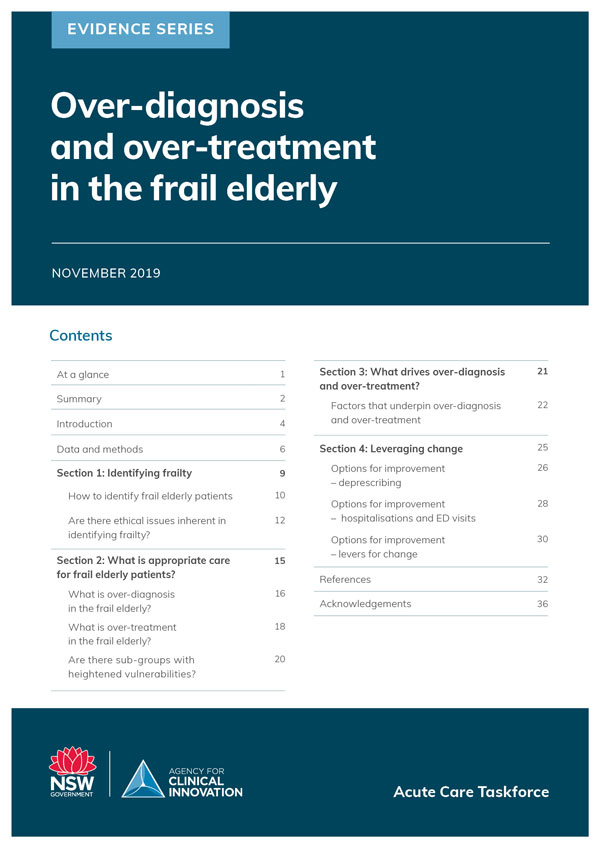Published: December 2019. Next review: 2025.
Frailty is increasingly recognised as a critically important policy and quality of care issue in healthcare systems.
There is clear evidence that frail older people are at increased risk of acute illness. These heightened risks mean that frailty is associated with high mortality and high healthcare utilisation. It is a key consideration in clinical decision-making.
Frailty is however a contested concept, both in definition and measurement terms. Identification of frailty is complex and issues of over-diagnosis and over-treatment are increasingly garnering attention.
This report draws on scientific literature, empirical data and experiential evidence from patients, carers and clinicians regarding over-diagnosis and over-treatment in frail elderly patients.
Underlying reasons for over-diagnosis and over-treatment include professional, cultural, organisational, health system, patient and carer and technology issues.
A shift towards balanced care that supports realistic expectations and delivery models informed by research, empirical and experiential knowledge is required to address issues related to over-treatment and over-diagnosis.
